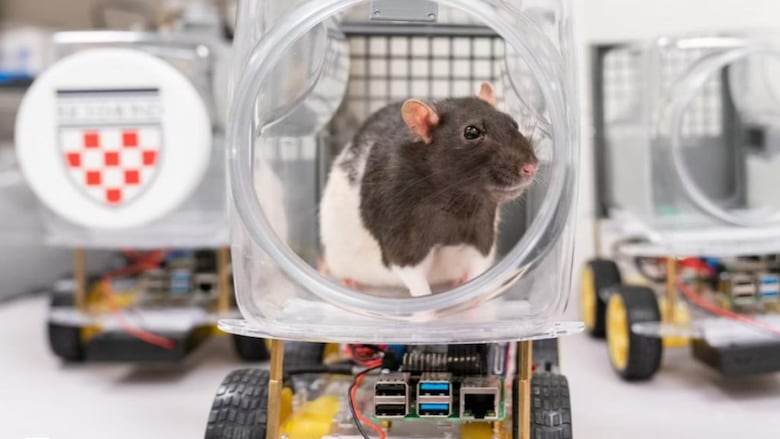Aug 2: Elephant seals sabotage a deep sea experiment, and more...
Digging through dino poop, lead made Romans dumber, elephants use tools, and happy rats


On this week's episode of the Best of Quirks & Quarks with Bob McDonald:

Bones aren't the only thing we can use to understand the dinosaurs. A new study of a rich trove of fossilized feces and vomit is telling the story of how dinosaurs diversified and came to dominate the planet starting 230 million years ago. Paleontologist Martin Qvarnström from Uppsala University in Sweden said it appears that the secret to dinosaurs' success is in their ability to adapt to their changing environment. Their research is published in the journal Nature.


Ice cores that preserve traces of atmospheric pollutants through history have revealed that industrial activity by Romans – particularly the use and production of lead – meant the air the Romans breathed was heavily contaminated. The levels were high enough to cause neurological problems, including a drop in cognitive function across the population. Joe McConnell and his team at the Desert Research Institute published their findings in the journal PNAS.


An elephant at the Berlin Zoo has learned to manipulate hoses to wash herself, which is fascinating researchers, including Humboldt University PhD student Lena Kaufmann, who is investigating tool use in non-human animals. In a recent study, published in the journal Current Biology, Kaufmann and colleagues gave Mary the elephant different hoses to test her abilities, and she quickly either adapted to use the hoses to meet her end goal, or got frustrated when the hoses didn't work and bit the hose in anger. What's also interesting is a companion pachyderm that has apparently learned to sabotage these showers by kinking the hose.


One day early in the pandemic, behavioural neuroscientist Kelly Lambert from the University of Richmond went to check on her rats. The rats responded with excitement when they saw her, anticipating the treats they were about to receive. That inspired her to pivot her research to study the effects that anticipating pleasurable experiences could have on the brain. She's found in research that has yet to be published, that building in anticipation periods before they get to do something they enjoy, increases, which, if her findings extend to humans, could help boost mental resiliency. Their previous work was published in Behavioural Brain Research.


A team of researchers developed a sophisticated deep-water experiment to observe and listen for sounds made by sablefish. They were startled when their study site was repeatedly visited by elephant seals, who would chase and chow down on the sablefish — all at 645 meters below the ocean's surface. This accidental observation was made in the Barkley Canyon Node, part of the Ocean Networks Canada (ONC) cabled video-observatory. It was the first time that elephant seals were studied in the deep ocean, giving unexpected and valuable new insights into seal resting and foraging behaviour. The findings were published in the journal PLOS One.
Producer Amanda Buckiewicz spoke with Rodney Rountree, an independent biologist, ichthyologist, and adjunct marine biologist in the Department of Biology at Victoria University.
And Héloïse Frouin-Mouy, an assistant scientist at the University of Miami's Cooperative Institute for Marine and Atmospheric Studies, and affiliate at the University of Victoria.
